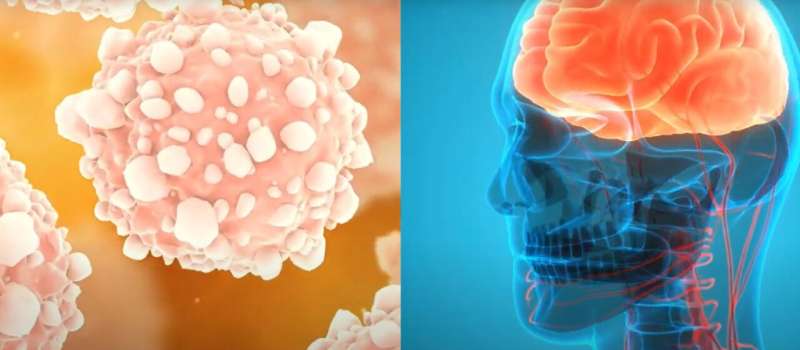This article has been reviewed according to Science X's editorial process and policies. Editors have highlighted the following attributes while ensuring the content's credibility:
fact-checked
peer-reviewed publication
trusted source
proofread
Islet autoimmunity: Set of altered proteins may predict who will develop type 1 diabetes

Scientists have taken an important step forward in predicting who will develop type 1 diabetes months before symptoms appear.
In a paper published online on June 29 in Cell Reports Medicine, researchers at the Department of Energy's Pacific Northwest National Laboratory and their colleagues identify a set of altered proteins that predict a condition known as islet autoimmunity, a precursor for everyone who will ultimately develop type 1 diabetes.
The scientists caution that the work marks a beginning, not the end, of a search for a way to predict who will develop the disease. More work needs to be done to verify the results and test whether the findings apply to everyone, not just the children who were in the study and were genetically predisposed to developing the disease.
A biomarker that detects pending autoimmunity would help physicians monitor a patient's condition, perhaps to detect worsening health and to prompt faster medical care even before symptoms appear.
The results are the culmination of a nine-year study led by PNNL scientist Thomas Metz that looked at hundreds of proteins in more than 8,000 blood samples from nearly 1,000 children at six study sites in North America and Europe.
TEDDY and clues to islet autoimmunity
The children have been participants in a larger umbrella study known as TEDDY—The Environmental Determinants of Diabetes in the Young. TEDDY includes children who, because of their genetic makeup, are more likely than others to develop type 1 diabetes. The study, nearing its 20th year, seeks to understand why some children develop the disease while others don't.
In the latest study, PNNL scientists analyzed blood plasma samples of nearly 1,000 children from their birth up to the age of six. Researchers identified a set of 83 proteins whose combination of changes predicted which children went on to develop either islet autoimmunity or type 1 diabetes.
Right now, there is no way to know if or when either islet autoimmunity or diabetes will occur in people who are genetically predisposed. Doctors do know that when a patient develops at least two islet autoantibodies, they have islet autoimmunity and will develop diabetes—but they don't know what triggers autoimmunity or when diabetes will manifest.
"What's exciting about this work is that it opens the door to detecting autoimmunity earlier than we can right now," said Metz. "This gives us an opportunity to learn more about what causes the immune system to turn on the body. This could help us tease out and understand the mechanisms at play in the development of diabetes better than we do currently and provide potential targets for intervention."
The findings are the result of tens of thousands of hours of work by PNNL scientists and colleagues around the globe. At PNNL, scientists spent more than 16,000 hours just running the samples through instruments known as mass spectrometers to check the levels of hundreds of proteins in each of about 8,000 blood samples. Then there were countless hours planning the study, recruiting participants, monitoring their health and analyzing the data.
PNNL data analyst Lisa Bramer created a machine learning algorithm that analyzed the vast amount of data—information on hundreds of proteins from nearly 1,000 children, with multiple blood samples from each taken from their birth until they were six years old.
The scientists did the study in two phases. In the discovery phase, the team studied 2,252 blood samples from 184 children. There the team identified 376 proteins that were altered in patients who later developed islet autoimmunity or type 1 diabetes. Then the team performed a more in-depth validation study, looking at 6,426 blood samples from 990 children.
The 83 blood proteins the team pinpointed in the validation study are key to several important processes in the body, including antigen presentation, complement and blood clotting, inflammatory signaling and metabolism. The list of proteins matches up well with the proteins that the team knows are active in the pancreas of patients who have diabetes. The team identified those proteins previously in work conducted through the Human Islet Research Network.
The PNNL team hopes to continue the study by analyzing additional blood samples that have already been collected from the same children when they were older. Those blood samples were collected through TEDDY until the children turned 15.
"At this stage, we're trying to understand how we might be able to predict diabetes. Ultimately, the goal is to prevent critical insulin-producing cells from dying and to prevent diabetes altogether," said Ernesto Nakayasu, the first author.
In other studies related to diabetes and inflammation, PNNL scientists are studying exactly how our body's insulin-producing cells become vulnerable to an autoimmune attack—how insulin-producing cells in the pancreas are targeted and killed by the body. Researchers are also looking at how omega-3 fatty acids can protect those cells.
Hunt for diabetes biomarker: It takes a village
The study included children whose parents or guardians gave consent for their participation. In the United States, study sites included the University of Colorado, the University of Florida and the Pacific Northwest Research Institute in Seattle. Children at hospitals in Germany, Sweden and Finland also participated. The University of South Florida served as the data coordinating center.
Scientists from the National Institutes of Health, the University of Colorado, the University of Turku in Finland, Technical University of Munich, Lund University and Pacific Northwest Diabetes Research Institute also contributed.
More information: Thomas O. Metz, Plasma protein biomarkers predict both the development of persistent autoantibodies and type 1 diabetes 6 months prior to the onset of autoimmunity, Cell Reports Medicine (2023). DOI: 10.1016/j.xcrm.2023.101093. www.cell.com/cell-reports-medi … 2666-3791(23)00212-4





















